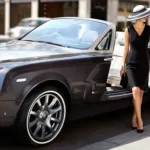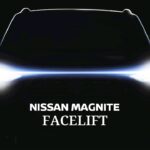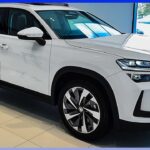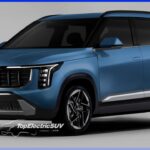Speaking to a head honcho is always a great opportunity to delve into the details of any new product
After the launch of the MG Windsor EV in India along with the BaaS, things have become quite interesting. The main issue with EVs is their exorbitantly high initial prices. In fact, that is keeping electric cars from becoming mainstream. Obviously, the lack of charging infrastructure is also a critical aspect. But the fact that you need to shell out around 1.5x the amount of a comparable ICE car is a huge hurdle. To address that, MG has come up with an interesting strategy. It is charging Rs 9.99 lakh, ex-showroom for Windsor EV as a vehicle. However, it is offering the BaaS (Battery as a Service) which means that you can rent the battery at Rs 3.5 per km of usage. Therefore, you save a huge amount upfront and pay it in subsequent years of ownership as per your usage. Of course, there are terms and conditions to it. Still, it eases the burden off the shoulders of the EV buyers initially. We got a chance to interact with Gaurav Gupta, Chief Growth Officer at MG India, to deduce the vision and plans of MG in India in the immediate future.
Conversation with Gaurav Gupta, CGO MG India, About Baas & More
Q. We have a few two-wheeler manufacturers providing BaaS option. But it’s yet to see a widescale adoption. MG becomes the first to launch this technology in the car market. What were the factors that led you to introduce it? Do you think there’s a parallel in this aspect in the two and four-wheeler EV market?
A. We have seen that EV adoption has three areas which need to be addressed. The first is the kind of options consumers have as vehicles. With all due respect to everyone, we have majorly seen carmakers convert their existing ICE cars into EVs. These are Gen 1 or Gen 1.5 cars. We have not seen skateboard architecture-based cars which offer the real experience of EVs. But Windsor is based on the skateboard platform. As a result, MG Windsor EV is an A-segment-priced car with a B-segment size and C-segment interior space. Also, the batteries have not been so efficient so far. That has impacted the overall assessment regarding the longevity and resale value of EVs.
Secondly, there is the charging problem. When we launched eHUB in August as an aggregator with almost 80% of all public chargers on it, it is like a Zomato of chargers in the country. You can plan your trip and choose the kind of chargers you want for your car, and know the rate and payment information easily. The third biggest hurdle is acquisition price because the battery cost was the hurdle which kept the EV prices high. Even the Lithium prices are going down. Still, the battery component in the price of an EV is sizeable. The battery outlives the age of the car. However, you don’t often use an EV for such a long time for which the battery gets completely degraded. Still, buyers have to pay for the entire battery life. Hence, it makes sense to pay for usage just like you fill petrol or diesel in ICE cars. That is the origin of this idea of separating the prices of the car and battery. You can choose between multiple plans which don’t require you to have a minimum monthly running. Hence, there are many use case scenarios depending on the usage of the consumer.
Q. Does MG/SAIC offer BaaS in other markets it operates in? How’s the popularity of this service vis-a-vis conventional purchase model?
A. We are doing this formally in India. We believe that in other countries, there are other ways to accelerate EV adoption like renting a battery. Having said that, this BaaS is the most structured and formal way to bring this to the market. It is a big mindset change looking at it from an ownership approach. Also, if you are buying an ICE car worth Rs 10 lakh, you will spend about Rs 12,000 every month on fuel considering a daily running of 50 km. On top of that, there are running and repair costs of the moving parts and engine. Whereas for the MG Windsor EV, for 1,500 km, you will pay about Rs 6,500 including Rs 3.5 per km battery rental and Re 1 for charging. Hence, you are paying almost double this amount in comparison to ICE cars on a monthly basis.
Second is the entire experience. The cabin is much more spacious, the transmission is automatic and the size is that of a mid-size SUV. With ICE, you will perhaps get a manual transmission at this price point. So there are many advantages. Apart from that, public charging is also complimentary from our side for the first year to take care of your cost concerns. The entire movement is to shift the mindset of people to look at batteries as an energy package. The eHUB plan of free public charging for one year is applicable to all buyers of the Windsor who purchase this EV before December 31, 2024, regardless of which plans they opt for.
Q. Is it possible to purchase the Windsor with the battery, ie, without opting for BaaS and paying for a battery unit up front?
A. Yes. There is a clear option for buyers to go for either BaaS or pay for the entity (car and battery) upfront. The prices are not announced yet. The reason is that the concept of BaaS is necessary to shift the mindset of people first. If you ask me, this is the best option to promote people towards EV adoption. Another reason for that is our 3-60 buyback plan. The Windsor owners can use the EV for 3 years, keep it in great condition, save a lot on running costs in comparison to traditional ICE cars and still give it back at 60% of the value of the car. In this way, they can keep their options open.
Q. Certain BaaS models abroad let users swap batteries within 5 mins. Does Windsor offer swapping facility?
A. It is very difficult to predict the future of battery swapping currently. But if battery swapping becomes an option over time, maybe certain models will offer it, because it requires economies of scale also, it will definitely be an option to consider and explore in India. This is subject to volume and technical expertise.
Q. Are there any plans of offering multiple battery options, of varying capacities, to MG Windsor EV owners?
A. The vehicle which we have got to the market has a 38 kWh battery. I think the entire package is very comprehensive in terms of form factor, shape, range and the package. So, we will focus on building the current MG Windsor EV in the right manner.
Q. Finally, Will MG introduce this service on its other EVs? If so, which one between the ZS and the Comet would become the next recipient of it?
A. That is a very good question. Definitely! The BaaS is the disruption that we actually want even more. Just like the mutual funds movement, there is a movement towards the capital market. Similarly, if other financiers come on board after understanding the concept of BaaS, there will be a movement towards EV adoption as there will be more options for the buyers. This does the mindset change similar to what we did with Internet Inside. Therefore, we are definitely exploring the options to bring BaaS into our other EVs in the portfolio.
Q. What’s the cost of the home charger for MG Windsor EV?
A. We are providing a home charger setup with the car free of cost. For the base level MG Windsor EV variant, we are providing a 3.3 kW wall box with a cable and installation. With the higher variants, we will provide a 7.4 kW charger with installation.
Also Read: Explained – MG Windsor’s Industry-First Purchase Model






